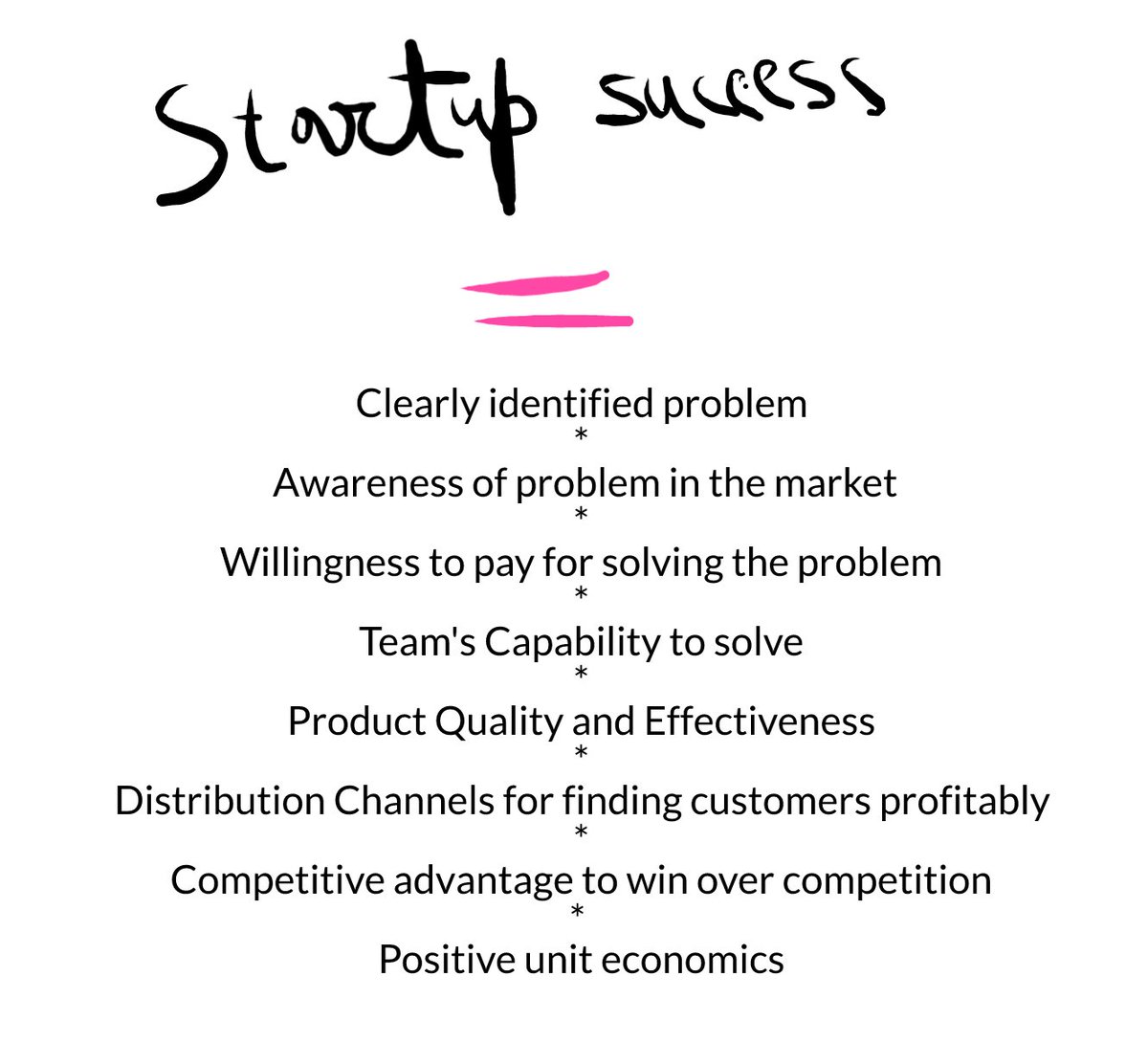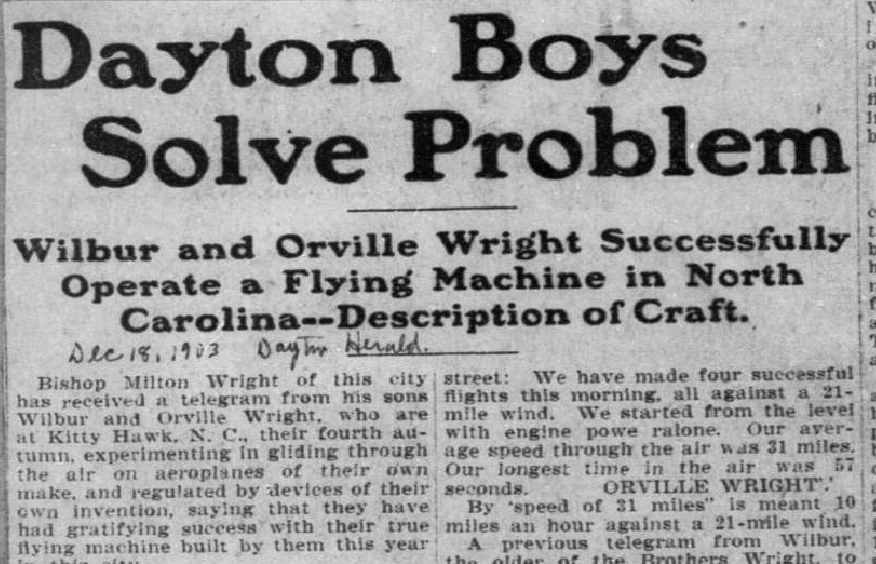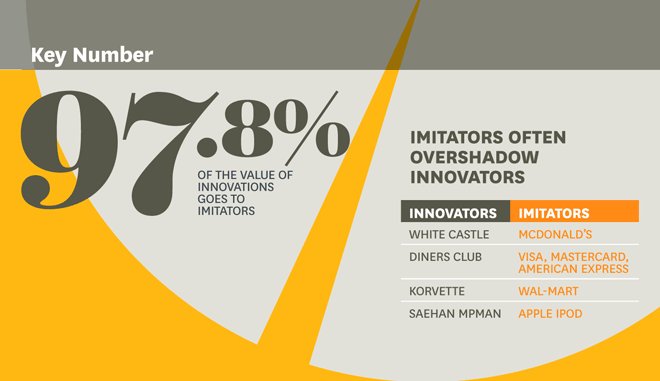Startups become successful when multiple things 'click' together like a jigsaw puzzle.

More variables you tweak, the more likely that you’ll fail in solving the entire equation. This is because all these variables are dependent on each other.
So, why do tech founders usually seek original ideas for their startups?
Wright brothers were celebrated all over the world for their innovation, but Boeing and Airbus reaped all the economic rewards.

So, why not simply copy ideas instead?
It allows you to let other entrepreneurs make mistakes in solving the equation and save you time and effort.
Almost all economic value is captured by imitators, not innovators!

Similarly, iPhone wasn't the first smartphone, nor Google the first search engine or Facebook the first social network.
But what’s important to note is what copying alone doesn’t guarantee success.
There are smart copycats and then there are dumb ones (tip: you want to be the former).
As Peter Thiel says, be the last the monopolize the market. I’ll add my caveat: also don’t be the first to innovate.
In Facebook’s case, differentiation was done by limiting signups to the Harvard campus only invertedpassion.com/details-struct…
If a billion dollar company is shameless about copying, why you – my dear entrepreneur – are hell bent on innovating?
Because in the process of copying, you’ll inevitably add your own personality and you’ll use your life and work experience – you can’t help it but make the copied product uniquely yours.
To be successful, copy what’s already successful in a nascent market and tweak it just so slightly that you’re differentiated in some meaningful way. (And, yes, you can send me your dollars of gratitude if you succeed following my advice).
Share and retweet my new blog post -> Copying ideas is highly underrated invertedpassion.com/copying-ideas-…




